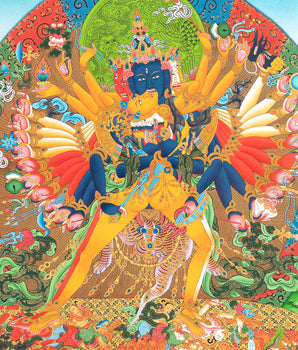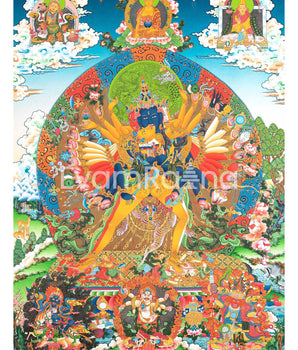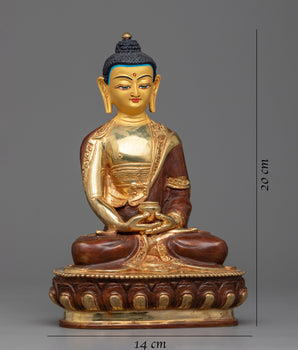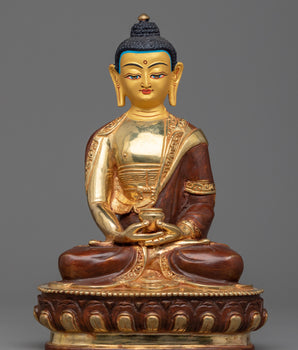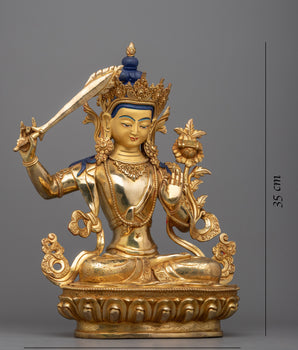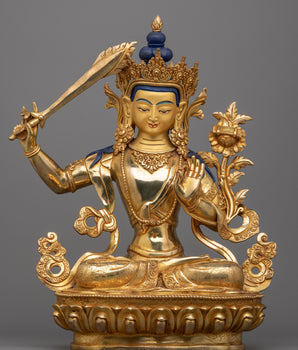Yidam Thangka
Yidam: The Personal Meditation Deity in Vajrayana Buddhism
Background and Significance
The concept of Yidam holds great significance within the intricate tapestry of Vajrayana Buddhism. The term "Yidam," derived from the Tibetan "yi-dam," where "yi" signifies mind and "dam" implies binding or holding, refers to a personal meditation deity. Yidam is regarded as an embodiment of enlightened energy with which practitioners cultivate a close and intimate relationship.
The Yidam is a bridge, guiding the practitioner from ordinary states of consciousness toward enlightened awareness. Through the practice of deity yoga, wherein practitioners visualize themselves as the Yidam, they aim to integrate the qualities of the deity, expediting their journey to enlightenment.
Attributes and Role
Yidams can assume various forms, ranging from serene and peaceful to wrathful or semi-aggressive, based on the temperament, needs, and specific obstacles the practitioner seeks to overcome. For example, Manjushri is a Yidam suitable for those seeking wisdom, symbolized by his flaming sword that cuts through ignorance.
Vajrayogini, with her vibrant and passionate energy, is an appropriate Yidam for individuals striving to transform desire into enlightened compassion. The selection of a Yidam is often a deeply personal process, sometimes guided by a teacher or revealed to the practitioner through dreams or intense meditation.
The Yidam fulfills several roles. They act as protectors, guiding the practitioner away from potential pitfalls on their spiritual journey. Moreover, they serve as mirrors, reflecting the inherent Buddha nature within every individual. Through regular practice, the boundaries between the practitioner and the Yidam begin to blur, revealing the non-dual nature of reality.
Associated Practices and Beliefs
Working with a Yidam involves reciting mantras, engaging in visualization, and practicing profound meditation. These rituals, often initiated under the guidance of a skilled teacher, aid in establishing a deep connection with the Yidam.
The transformation is believed to be more profound when the visualization is vivid and persistent. As the distinction between the meditation deity and the meditator gradually fades, and as the practitioner assimilates the attributes of the Yidam, profound realizations are experienced.
In summary, the Yidam is a guiding light for Vajrayana Buddhist practitioners, assisting them on their often tumultuous path of self-transformation. Through the Yidam, practitioners explore the inner depths of the deity and discover and embody the enlightened qualities that have always existed within them while engaging with the deity's external aspects. Thus, the Yidam serves as a reflection of the practitioner's highest potential and a figure to be revered.
Your cart is currently empty.
Start Shopping





